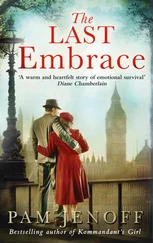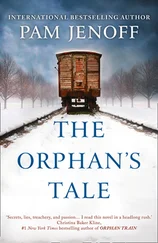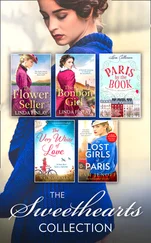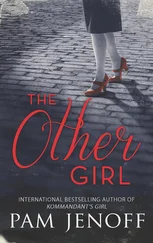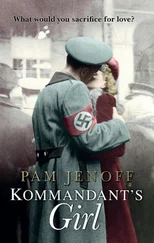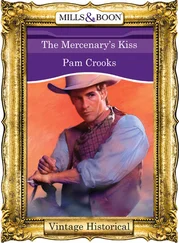Closing the gate, Ruth gazed up at the hill where her sister had traveled a few hours earlier, trying to picture the hospital. They would make Mama well, though how they would go about it, she could not fathom. Helena was always so vague in her descriptions of the nurses and Mama’s treatment, and Ruth did not like to ask too much and admit that she did not know. But there was a plan, she had always believed, and that plan could surely not be to leave the children with neither parent. No, Mama would not be going to the Other Place with Tata. Not now.
“The other place,” Helena repeated, with that one eyebrow arched, after overhearing Ruth using the expression to explain to Michal where their father had gone.
“Heaven, or whatever you would call it, where they go after they die...” Ruth kept speaking, using too many words, spilling them on top of one another like a drink carried too quickly across the room.
“I thought that was something you’d made up just for the children,” Helena replied. Ruth looked over her shoulder to make sure the little ones were out of earshot. “Surely you don’t believe it.”
Ruth faltered. “Don’t you?” Helena had gone to church and sat beside her as the priest talked about heaven each week.
“I believe we put Tata in the ground. And that is where he is.” Stifling a gasp, Ruth crossed herself. She had pushed away the image of the coffin being lowered into the earth, holding Dorie back so she didn’t throw herself in the hole after it. To Helena, dead was dead. They had not spoken of it again.
Ruth continued walking along the narrow band of water that wound along the edge of town like a ribbon. Farther down, it passed between high banks of peat moss under a crude wooden bridge where children played in summer as their mothers washed clothes. It quickly disappeared around the bend where it widened into the gorge. When they were younger, she and Helena would climb the bluff holding hands and watch the logs travel downstream to the mill.
An image flashed through Ruth’s mind of her and Helena standing in this very spot when they were seven. A snowstorm had come suddenly on their way home from school and Helena had been transfixed by the way the forest was suddenly coated in white. “Come,” Ruth had urged, tugging her toward home, but Helena stood still. Ruth’s gaze followed her sister’s upward to where the treetops and sky became one. They remained motionless, for how long Ruth did not know, hand in hand, the two of them alone in that snow globe of a world.
“Dziewczyny!” Girls, a voice called like a sharp wind, blowing her into place. Only then had Ruth noticed the coating of ice on Helena’s face, and the way her own feet had gone numb. A neighboring farmer had found them and carried them home. They might have died, Mama scolded. But together they had not been afraid. How she wished for just another moment like that, the two of them alone in a white, silent world.
At the adjacent Slomir farm, an old man pulled a wagon with both hands, taking the place where his horse had once been. Though his land was ten times the size of theirs, Pan Slomir had always looked enviously across the fence at their plush, fertile patch, which seemed to draw energy from the stream like a child from its mother’s breast. Now he glared at her, not bothering to mask his disdain. Ruth hunched her shoulders slightly to avoid making eye contact. Once she had loved the walk into town, soaking up the approving looks like sunshine warm on her face. She could almost hear him thinking: What would become of the Nowaks? It was a question that Ruth herself did not like to ask.
Closer to town, she focused on the familiar things—the way the houses, set close to the road, slatted at exactly the same angle, the birds seeming to dart from rafter to rafter in identical patterns, as though performing a dance. Twigs and roots poked out persistently between the paving stones. Biekowice was not a place that one ever left. Children grew up and married and raised their families in the same house, or maybe their husband’s house if it had more room. Sons worked at the same jobs their fathers had before them. Marriage just above one’s original station was the best to be hoped for a daughter. Every ten years or so, some headstrong young person would head off to the city never to be heard of again. Rumors of doom and destruction always followed. There had been a story once of a girl who had left and found her fortune, but Ruth didn’t know her personally.
She passed the school, now closed by German decree. A group of girls, twelve or thirteen years old, played around the wide base of a tree. Ruth envied the easy way they laughed and joked. She and Helena had gone to school for a few years when they were younger, before Mama decided to teach them at home. But the village schoolgirls regarded the identical twin sisters, who sat in the back of the classroom together holding hands, as an oddity. Helena had never seemed to mind much, deeming the other girls “silly.” Ruth would have liked to have been included in their secrets and games, though. She had never quite fit in here, felt an outlier from the others. But that couldn’t be right, for she had never been anywhere else. Was it possible simply to belong nowhere?
She approached the main square. Market was a modest affair, a dozen or so canvas-covered tables smelling of carp in stale water and odd bits of too-old meat. Beside the stalls, Gorale women who had come from the sharp mountain peaks to the south sat on the ground, selling crude wool sweaters and salty sheep cheese from burlap sacks, their weather-hardened faces turned upward.
At the dairyman’s stall, Ruth gave her most appreciative smile, hoping that he might move the wire over a bit to make the cut of cheese more generous. But he simply looked down at his work. She turned away, feeling foolish. Once her smiles seemed to buy everything. Now it was as if her prettiness had faded, making her a tarnished coin. It wasn’t just that, of course—the war had taken the men to the front. There were so many more women that even a tired old merchant failed to notice.
She passed the dairyman the ration cards and moved on. Behind the vegetable stall, Pani Kowalska sorted potatoes and did not look up. She had been a contemporary of Mama’s and could not be more than forty-five, but the hair tucked beneath her kerchief was white and she had many chins, making her look much older. What was it about the women in the village who seemed to age overnight? One day they were young and beautiful, with the promise of a future before them, and the next they were crones. Mama had never made the transition—she had not had the chance before taking ill. But Ruth knew that one day she would wake up looking exactly as Pani Kowalska, and then any remaining hope for a future would be gone for good.
She appraised the selection of fruits and vegetables. Even before the war it had not been good, the cool climate and short growing season inhospitable for vegetables like tomatoes and peppers. Now all that remained were a few mottled onions and potatoes already sprouting roots.
“Three apples,” Ruth requested. An unfamiliar police car sat at the edge of the market, engine idling despite the lack of a driver. Ruth shivered uneasily. The fact that the provincial police had come to town had nothing to do with her, but it was different, and change seldom meant anything good.
“Did you hear about the Garzels?” Pani Kowalska asked as she weighed the fruit on the scale. The mole on her nose, which seemed to have doubled in size since Ruth had last visited the stall, bobbed as she spoke.
Ruth shook her head as though the woman were watching. Life in a small village reminded Ruth of what a zoo might be like, though she had only read about such places. Homes transparent, lives exposed to one another. Everyone knew everyone else’s business, almost before it had happened. “Nie.” Ruth suspected that she did not want to hear the answer. She inspected the apples the woman handed her, which were mottled and bruised. She did not protest, knowing the rest in the barrel would be no better.
Читать дальше
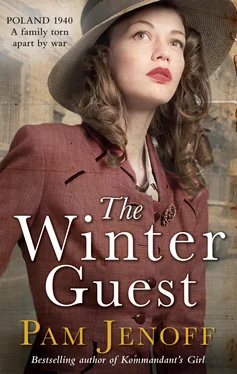
![О Генри - Граф и свадебный гость [Черное платье] [The Count and the Wedding Guest]](/books/405331/o-genri-graf-i-svadebnyj-gost-chernoe-plate-th-thumb.webp)
